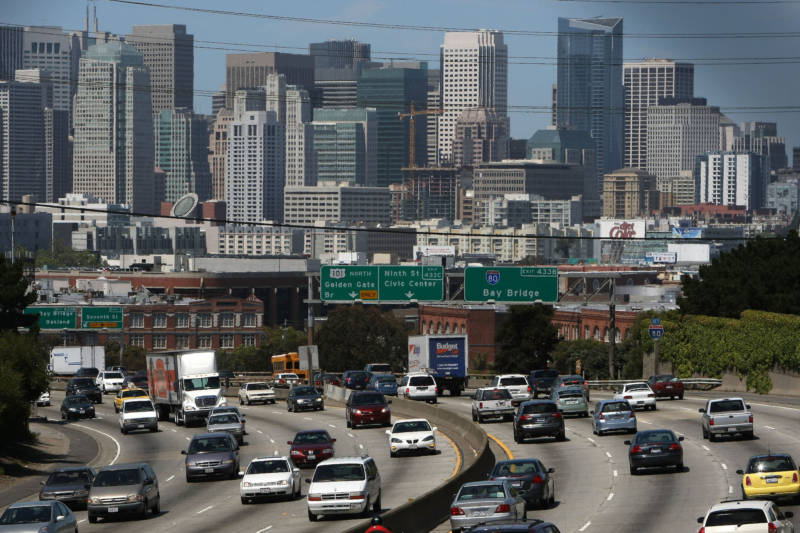
The U.S. Environmental Protection Agency announced on Monday that it has rejected an Obama-era plan to cut tailpipe emissions for cars and light trucks. The statement also signaled an oncoming legal battle over California’s own stricter emissions standards.
“It is in America’s best interest to have a national standard,” said EPA Administrator Scott Pruitt. “Cooperative federalism doesn’t mean that one state can dictate standards for the rest of the country.”
In response, California officials immediately fired off condemnations of the decision.
“Watch out for this belated April Fools’ Day trick,” said Governor Jerry Brown in a statement. “This cynical and meretricious abuse of power will poison our air and jeopardize the health of all Americans.”
California Air Resources Board Chair Mary Nichols noted that the decision changes nothing in California and the 12 other states with strong emissions standards.
